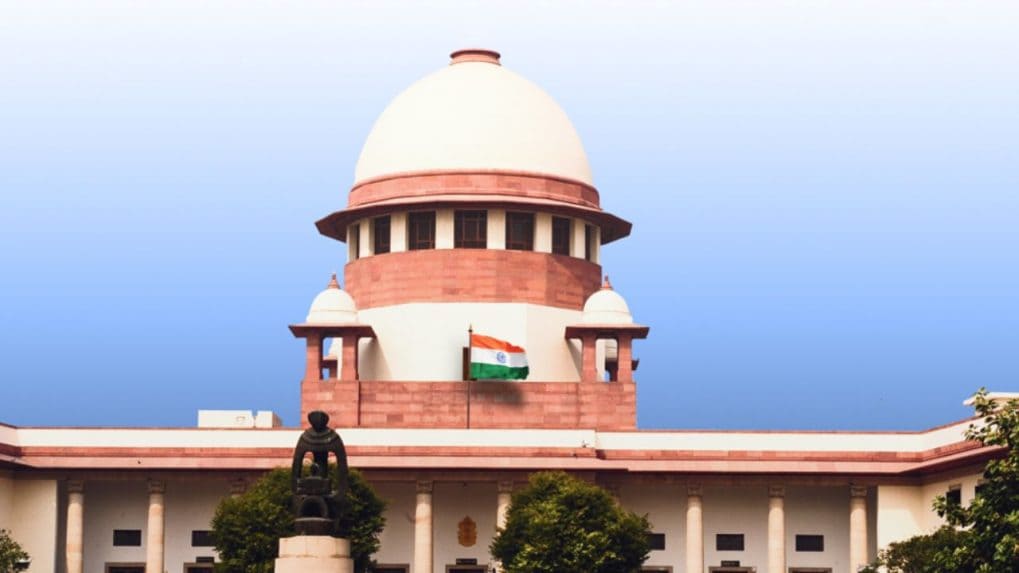Advertising
From Pink Slips to Silent Sidelining: Inside adland’s layoff and anxiety crisis

The Supreme Court on Monday issued notice to the Union government on a public interest litigation (PIL) filed by the Centre for Accountability Systemic Change (CASC), seeking stringent action against illegal betting and gambling websites allegedly operating in the guise of esports and social gaming platforms.
A bench comprising Justices J.B. Pardiwala and K.V. Viswanathan heard the matter and directed the government to file a comprehensive reply. The bench also ordered the case to be tagged with the ongoing batch of petitions challenging the Promotion and Regulation of Online Gaming Act, 2025, which is scheduled for detailed hearing on November 4.
During the proceedings, V.C. Bharathi, panel counsel for the Union government, submitted that the new legislation—Promotion and Regulation of Online Gaming Act, 2025—once notified and brought into force, would adequately address the grievances raised in the petition.
However, counsel for the petitioner, CASC, contended that the new law does not sufficiently curb the proliferation of illegal betting and gambling applications. The counsel argued that despite the enactment, over 2,000 betting and gambling platforms continue to operate freely in India, often disguised as social or esports gaming apps accessible to minors.
“The new legislation provides a backdoor entry for esports and online social games, many of which continue to engage in real-money betting activities,” the petitioner’s counsel submitted, adding that “even after six advisories and parliamentary discussions, there is no explicit provision banning online betting.”
Petitioner’s Reliefs Sought
The PIL seeks multiple directions from the court, including:
A harmonious interpretation of the new central legislation and state gaming laws to ensure consistent prohibition of online gambling and betting activities.
Blocking orders under Section 69A of the Information Technology Act, 2000 against illegal betting websites and mobile apps.
Directions to RBI, NPCI, and UPI platforms to restrict financial transactions linked to unregistered online money gaming entities.
Adoption of stringent measures similar to the Tamil Nadu Prohibition of Online Gaming Act, 2022 across all states.
Mandating Google Play Store and other intermediaries to whitelist only those gaming apps duly licensed by Indian authorities.
Recovery of pending GST and income tax dues from offshore operators via enforcement agencies like the ED, CBI, and Interpol.
Protection of children’s data collected by online gaming platforms.
The Centre’s counsel reiterated that the Online Gaming Act, 2025, once fully operational, would regulate all forms of online gaming and address concerns related to gambling. He clarified that only the section authorizing future notifications has been brought into force so far, and other provisions will follow upon formal notification.
The bench, however, noted that the government must file a written response clarifying the scope and implementation timeline of the new law, given the petitioner’s claim that “no explicit ban has yet been enforced.”
“Your case is that even if the new law doesn’t expressly prohibit these activities, betting and gambling cannot be carried on,” Justice Pardiwala said during the hearing.
The court took note of the petitioner’s submission that CASC, a registered non-governmental organization, had compiled detailed research and submitted a list of 387 specific betting apps to the authorities, urging immediate action. The bench instructed the government to verify these claims and take appropriate steps, subject to the final outcome of the proceedings.
The court directed the Union government to file its affidavit responding to the allegations and ensure that the issue is heard along with the related batch of cases listed for hearing on Tuesday. Petitioners were also asked to be ready to argue alongside other matters concerning legality, taxation, and federal jurisdiction over online gaming and betting regulation.
From purpose-driven work and narrative-rich brand films to AI-enabled ideas and creator-led collaborations, the awards reflect the full spectrum of modern creativity.
Read MoreLooking ahead to the close of 2025 and into 2026, Sorrell sees technology platforms as the clear winners. He described them as “nation states in their own right”, with market capitalisations that exceed the GDPs of many countries.